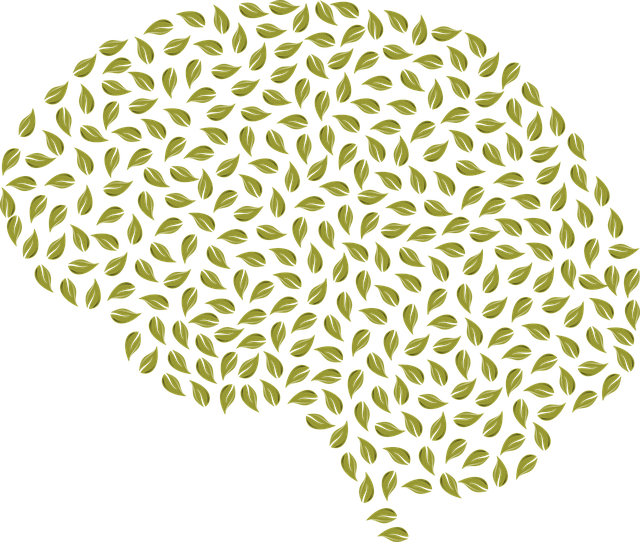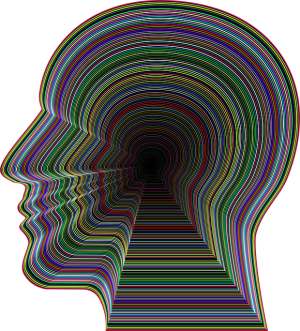Psychodynamic therapy is a type of mental health counseling that explores past experiences, unconscious thoughts, and emotions to understand current behaviors and challenges, focusing on how early life interactions shape adult behaviors. This approach enhances self-awareness, improves emotional regulation, and helps resolve underlying conflicts for better mental well-being. To find qualified psychodynamic therapists nearby, use online directories, local healthcare networks, referrals from trusted sources, and check with hospitals and mental health centers. Sessions involve open discussions to uncover unconscious patterns and conflicts, fostering introspection and personal growth. Psychodynamic therapy is effective for complex emotional issues, offering tailored care based on individual histories and promoting healthier coping strategies. Success stories highlight its role in healing and personal growth, making it a valuable resource in modern mental health counseling.
“Uncover the transformative power of psychodynamic therapy, a profound approach to mental health counseling that delves into the subconscious mind. This article explores how qualified therapists utilize key principles to address deep-rooted issues. Learn about the benefits, from improved self-awareness to enhanced emotional well-being, and discover how to identify local psychodynamic therapists. We guide you through session expectations, common challenges, and successful real-life stories, empowering you to embrace a journey of healing and personal growth through mental health counseling.”
Understanding Psychodynamic Therapy: An Overview of Key Principles

Psychodynamic therapy is a form of mental health counseling that focuses on exploring an individual’s past experiences, unconscious thoughts, and emotions to gain insight into their current behaviors and challenges. This therapeutic approach believes that our early life interactions and relationships significantly shape our psyche and play a crucial role in influencing our adult behaviors and emotional responses. By delving into these hidden aspects, psychodynamic therapists help clients uncover underlying conflicts, resolve them, and ultimately enhance self-awareness.
The key principles of this therapy involve the concept of the unconscious mind, where repressed or forgotten memories and desires reside. It suggests that unresolved issues from childhood can manifest as recurring patterns in adult relationships and situations. Therapists facilitate a process of introspection, encouraging clients to relate their current struggles to past experiences. Through this journey of self-discovery, individuals gain a deeper understanding of themselves, leading to personal growth and improved mental well-being.
The Benefits of Psychodynamic Therapists for Mental Health Counseling

Psychodynamic therapists offer a unique and valuable approach to mental health counseling, focusing on the exploration of unconscious thoughts and emotions. This method delves into the complex interplay between past experiences, current behaviors, and future outcomes, providing clients with insights that can lead to profound personal growth and healing. By uncovering underlying issues and patterns, psychodynamic therapy helps individuals understand how their historical traumas or early life experiences might be influencing their present-day mental well-being and interpersonal relationships.
One of the key benefits is the development of self-awareness. Through this process, clients gain a deeper understanding of themselves, enabling them to make more conscious choices and develop healthier coping mechanisms. This type of therapy also fosters better emotional regulation, allowing individuals to manage their reactions in various situations more effectively. Additionally, psychodynamic therapists can help clients identify and challenge maladaptive behaviors or negative thought patterns, which can significantly improve their overall mental health counseling experience and long-term well-being.
Identifying Qualified Psychodynamic Therapists in Your Area

When seeking psychodynamic therapists nearby, one of the initial steps is to identify qualified professionals in your area. This process involves a careful search for licensed mental health counselors who specialize in psychodynamic approaches. Start by consulting online directories and platforms that list therapists, ensuring they hold valid credentials and certifications. Many professional associations and government websites offer such resources, allowing you to filter searches based on location and specialization.
Utilize local healthcare networks and ask for referrals from trusted medical professionals or friends who have had positive experiences with psychodynamic therapy. Word-of-mouth recommendations can be invaluable in finding a suitable therapist. Additionally, check with nearby hospitals, clinics, and mental health centers, as they often collaborate with trained psychodynamic therapists who accept patients from the local community, providing access to quality mental health counseling services.
What to Expect During Sessions with a Psychodynamic Therapist

During sessions with a psychodynamic therapist, clients can expect an in-depth exploration of their thoughts, feelings, and past experiences. This type of therapy focuses on uncovering unconscious patterns and conflicts that may be influencing current behaviors and emotional states. Sessions often involve open-ended discussions, where therapists encourage clients to share their perspectives and insights freely. The therapist will help interpret these revelations, linking them to a client’s present circumstances to gain a comprehensive understanding of their mental health challenges.
In psychodynamic counseling, the relationship between therapist and client is considered crucial. Therapists aim to create a safe and supportive environment where clients feel comfortable exploring sensitive topics. Through this process, clients can develop greater self-awareness, gain insights into recurring issues, and learn healthier coping mechanisms. Over time, this introspection can lead to significant personal growth and improvements in overall mental health counseling outcomes.
Common Challenges and How Psychodynamic Therapy Addresses Them

Psychodynamic therapy is a powerful approach for those seeking deeper understanding and healing in their mental health counseling journey. Many individuals face challenges that can be effectively addressed through this therapeutic method, which delves into unconscious patterns and past experiences. Common obstacles include unresolved conflicts from early life, recurring emotional issues, and difficulties managing relationships. These problems often manifest as feelings of anxiety, depression, or interpersonal struggles.
Psychodynamic therapy offers a unique perspective by exploring the connections between current behaviors, thoughts, and past events. Through this process, clients gain insights into their underlying motivations and defensive mechanisms. By addressing these unconscious dynamics, therapists help individuals resolve conflicts, improve self-awareness, and develop healthier coping strategies. This approach fosters personal growth, enhances self-acceptance, and empowers clients to navigate relationships more effectively in both the present and future.
Integrating Psychodynamic Techniques into Modern Mental Health Practice

In modern mental health practice, integrating psychodynamic techniques into traditional therapies has emerged as a powerful approach to understanding and treating complex emotional issues. Psychodynamic therapy delves into the unconscious mind, exploring past experiences, relationships, and internal conflicts that may be influencing current behaviors and thoughts. By incorporating these techniques, mental health counselors can provide more comprehensive care tailored to each client’s unique history. This integration allows for deeper insights into the underlying causes of distress, enabling more effective interventions.
For instance, in mental health counseling sessions, therapists might use free association exercises or dream analysis to uncover repressed memories and emotions. These methods help clients gain awareness of their unconscious patterns and defend against disturbing thoughts. Additionally, psychodynamic techniques foster a safe space for individuals to explore their relationships, enabling them to better understand the dynamics that shape their emotional responses. This holistic understanding is invaluable in helping clients navigate and overcome challenges in their current lives.
Real-Life Success Stories: Transformative Experiences with Psychodynamic Counselors

Many individuals seeking mental health counseling find solace and transformative growth through psychodynamic therapy. This approach, which delves into one’s past experiences, unconscious thoughts, and emotional patterns, has helped countless clients overcome various challenges. Real-life success stories abound, with people describing their journeys as life-changing.
For instance, some individuals have shared how exploring early childhood traumas in psychodynamic counseling enabled them to gain profound insights into their current behaviors and relationships. Others have reported successful resolution of long-standing anxiety or depression, attributing this to the therapist’s ability to help them uncover and process repressed emotions. These transformative experiences highlight the power of psychodynamic therapists in facilitating personal growth, healing, and improved mental well-being.
Resources and Next Steps for Finding Supportive Psychodynamic Therapists Nearby

When seeking supportive psychodynamic therapists nearby, there are numerous resources available to facilitate your journey towards improved mental health and well-being. Start by consulting trusted networks and platforms that specialize in connecting individuals with qualified therapists. Online directories and community forums dedicated to mental health counseling often offer detailed profiles of practitioners, allowing you to filter by specialization, location, and client reviews. This ensures you find a therapist aligned with your specific needs.
Additionally, local healthcare providers, community health centers, and university-affiliated clinics can be valuable resources for referrals. Word-of-mouth recommendations from friends or family members who have had positive experiences with psychodynamic therapy can also guide you towards reputable therapists in your area. Remember to assess the therapist’s approach, credentials, and availability before making an appointment, ensuring a fitting match for your mental health counseling needs.
